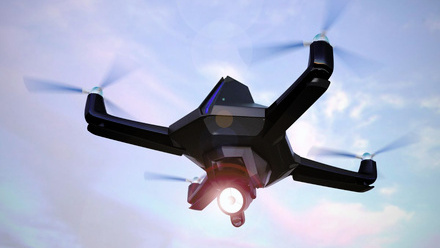Secure Data Centres and Their Role in C4ISR: Countering Threats in the Digital Age
Guest blog by Julie Preston, Account Manager for Defence and Security at Workforce Technology #DefTechWeek
Data Centres and SCIFs (Secure Compartmental, Information Facilities) are critical components of C4ISR (Command, Control, Communications, Computers, Intelligence, Surveillance, and Reconnaissance) systems, which are essential for military and defence operations.
Enhancing operational effectiveness, data security, and situational awareness in military contexts. Their roles are increasingly vital in an era of advanced technology and cyber threats.
Cybercrime and hacking are significant threats today's digital age. To address these risks, the military must invest in robust cybersecurity measures, including firewalls, intrusion detection systems, encryption, employee training, and incident response plans. Regular security audits and vulnerability assessments are essential to identify weaknesses in their defences. Staying informed about emerging threats and complying with relevant data protection and cybersecurity regulations is crucial.
But what are SCIFs? and why are they important?
Secure Buildings, such as Sensitive Compartmented Information Facilities (SCIFs), play a pivotal role in preventing theft of IP, cybercrime, and hacking. SCIFs are highly secure areas within buildings designed to safeguard sensitive and classified information.
The robust security measures and protocols employed within a SCIF serve as a model for safeguarding sensitive information in Defence.
Here is how a SCIF building can contribute to safeguarding IP, prevent data leakage, and create a secure environment.
Physical Security:
SCIFs are constructed with reinforced walls, ceilings, and floors that are resistant to forced entry and eavesdropping. This physical security barrier prevents unauthorised access to sensitive information, including proprietary IP.
Access Control:
SCIFs employ strict access control measures, including biometric authentication, card readers, and security personnel. Only individuals with the proper clearances and a need-to-know are allowed entry, reducing the risk of unauthorised access and IP theft.
Secure Communication:
SCIFs are equipped with secure communication systems that prevent eavesdropping on conversations and data transmissions, protecting sensitive information from being intercepted.
Protection Against Electronic Surveillance:
SCIFs incorporate measures to protect against electronic surveillance, including RF shielding, acoustic dampening, and TEMPEST (Technical Surveillance Countermeasures) standards compliance. These measures help prevent unauthorised collection of data, including IP, through electronic means.
Secure Storage:
SCIFs typically have secure storage facilities, such as safes and secure file cabinets, where sensitive documents and data are stored when not in use. This minimises the risk of physical theft of IP.
Personnel Security:
Extensive background checks and security clearances are required for personnel working in or accessing SCIFs, reducing the risk of insider threats that could lead to IP theft.
Visitor Controls:
Visitors to a SCIF are closely monitored and escorted to ensure they do not gain unauthorised access to sensitive information, including IP.
Strict Policies and Procedures:
SCIFs operate under strict security policies and procedures that mandate how sensitive information is handled, shared, and destroyed. This helps ensure that IP is always protected.
Surveillance and Monitoring:
SCIFs are equipped with surveillance cameras and security personnel who monitor activities within the facility to detect any suspicious behaviour or security breaches.
Secure Disposal:
SCIFs have procedures for the secure disposal of sensitive documents and electronic media to prevent unauthorised retrieval of discarded information.
Conclusion
Military operations depend heavily on the fast, secure, and efficient processing and sharing of data. Data centres provide the necessary infrastructure for handling large-scale data operations, while SCIFs ensure the confidentiality and integrity of sensitive information. Together, they form the backbone of modern C4ISR systems, empowering defence forces to make informed decisions, maintain operational security, and succeed in complex, rapidly changing environments. Their integration and reliability are paramount to achieving mission success and safeguarding national security.
To discover Workspace Technologies SecureCube® & its range of innovative, highly secure features please contact our Sales Team on 0121 354 4894, [email protected] or visit our website Prefabricated Sensitive Compartmented Information Facility (SCIF) | Technical Mobile & Modular Building
Defence Programme activities
The Defence programme works to help the UK’s defence technology sector align itself with the MOD. techUK members are able to navigate and better understand the UK Defence sector to successfully align their own investment and resources to take advantage of business opportunities. Visit the programme page here.
Upcoming events
Latest news and insights
Learn more and get involved
Defence updates
Sign-up to get the latest updates and opportunities from our Defence programme.
Meet the team

Fred Sugden
Associate Director, Defence and National Security, techUK
Fred is responsible for techUK's activities across the Defence and National Security sectors, working to provide members with access to key stakeholders across the Defence and National Security community. Before taking on the role of Associate Director for Defence and National Security, Fred joined techUK in 2018, working as the Programme Head for Defence at techUK, leading the organisation's engagement with the Ministry of Defence. Before joining techUK, he worked at ADS, the national trade association representing Aerospace, Defence, Security & Space companies in the UK.
Fred is responsible for techUK’s market engagement and policy development activities across the Defence and National Security sectors, working closely with various organisations within the Ministry of Defence, and across the wider National Security and Intelligence community. Fred works closely with many techUK member companies that have an interest in these sectors, and is responsible for the activities of techUK's senior Defence & Security Board. Working closely with techUK's Programme Head for Cyber Security, Fred oversees a broad range of activities for techUK members.
Outside of work, Fred's interests include football (a Watford FC fan) and skiing.
- Email:
- [email protected]
- Phone:
- 07985 234 170
Read lessmore

Jeremy Wimble
Senior Programme Manager, Defence, techUK
Jeremy manages techUK's defence programme, helping the UK's defence technology sector align itself with the Ministry of Defence - including the National Armaments Directorate (NAD), UK Defence Innovation (UKDI) and Frontline Commands - through a broad range of activities including policy consultation, private briefings and early market engagement. The Programme supports the MOD as it procures new digital technologies.
Prior to joining techUK, from 2016-2024 Jeremy was International Security Programme Manager at the Royal United Services Institute (RUSI) coordinating research and impact activities for funders including the FCDO and US Department of Defense, as well as business development and strategy.
Jeremy has a MA in International Relations from the University of Birmingham and a BA (Hons) in Politics & Social Policy from Swansea University.
- Email:
- [email protected]
- LinkedIn:
- https://www.linkedin.com/in/jeremy-wimble-89183482/
Read lessmore
Authors
Julie Preston
Business Development Manager, Workspace Technology Limited











